The other day, an update of the first mobile game under the brand of the children’s animated series “Barboskiny” appeared on the windows of Google Play (studio “Mill”, has been shown since 2011 in “Good Night, kids”) from the Moscow studio Bobaka. On this occasion, we decided to talk to the founders of the studio, to ask how it works in the market of children’s applications in general and children’s games under license in particular.
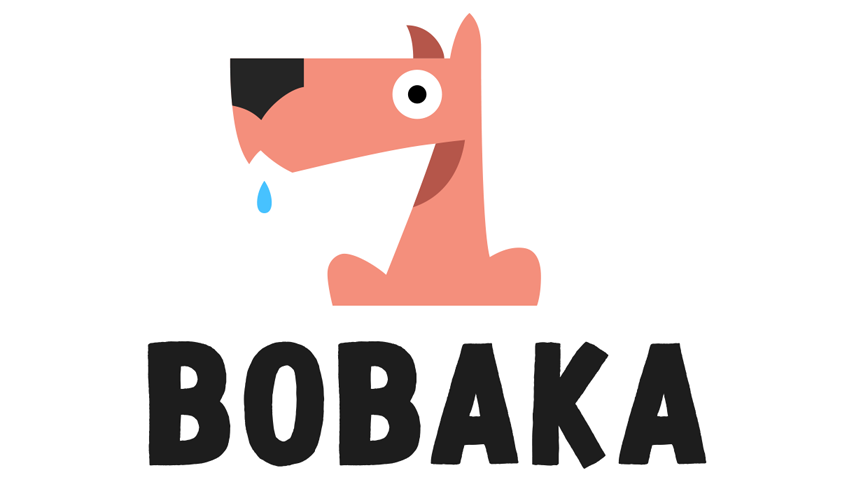
Alexander Nasonov, Bobaki’s executive producer, answered our questions.
Hi! I’ll start with a traditional question: tell us a little about yourself and your company, why did you decide to take up games and children’s apps?

Alexander Nasonov
Hi! The founders of Bobaki are me and Nikolay Vershinin, our CEO.
I started playing computer games in 2006. Since then, he has managed to work on many serious projects, including the Russian-language localization of Everquest 2 and the long-term construction of CrimeCraft, which at one time became one of the first games of the now popular MMOTPS genre. In 2010, I created the studio Ideal Bureaucracy, thanks to which such games as “Papa Penguin” were released, which reached the first place in the Brazilian App Store in 2011, and “Captain Antarctica”, which was in the first places in twenty-two appstores around the world.
In the spring of 2013, I was lucky enough to meet Nikolai Vershinin. At that time, among other things, he was engaged in an Internet project on the animated series “Barboskiny”, with the leadership of which he had been cooperating for several years. We quickly found a common language and decided to combine our efforts by creating a new digital publishing house “Bobaka” on the basis of existing assets.
Nikolay in the past is the leading designer of Lebedev Studio (who invented the well—known plush ridibunduses) and co-founder of the AERO creative agency, which presented many well-known projects to Runet: the websites of the 2×2 TV channel, Megafon, Euroset, Tsum and other large companies. A few years ago, AERO redesigned the portal дети.mail.ru . After the birth of two sons, the children’s theme in development became more relevant for Nikolai than ever, so the creation of “Bobaki” was for him a logical continuation of his business career.
I can’t help but ask: what does the studio live on today – external/internal investments or is the money that it earns on projects enough for development?
For a long time “Bobaka” lived at the expense of our investments with Nikolai. By the time of the creation of Bobaki, Nikolai had some financial resources that he was ready to invest in the business. I, in turn, had the opportunity to get a loan from a bank thanks to a good credit history of Ideal Bureaucracy. Of course, everything was very difficult. We have been in the death valley of startups for a long time, but in time we were puzzled by income diversification.
Now we live not only by selling our mobile applications, but also by implementing special advertising projects in them. The mobile advertising market is now at the peak of its growth rate, and the children’s brands we work with are very strong. Many manufacturers of goods and services for children are interested in children getting acquainted with their products on mobile devices through the characters of their favorite cartoons.
Thus, our own funds, sales of mobile applications, media advertising and special projects for the promotion of partner products and services allowed us to start paying for the content of the team and gave us the opportunity to develop.
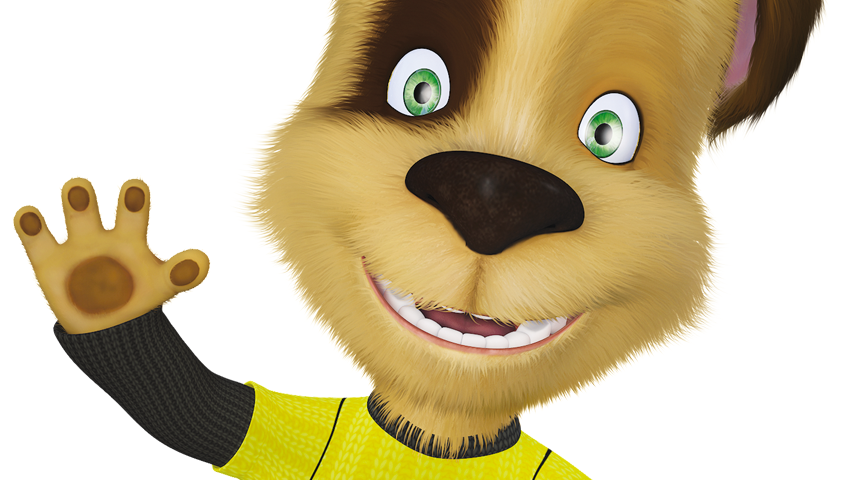
There is an opinion that it is difficult to work in the market of children’s applications today, to put it mildly. Why? Apple, for example, “pedals” this topic in every possible way, last year it even launched a separate category.
Of course, the issue of ethics of selling anything to children, and sales in general, will always be on the agenda. From a legal point of view, we recently touched on this topic with one of our partners, the xSolla service. Accordingly, Apple, on the one hand, is trying to control all aspects of app sales to children much more tightly, complicating the life of developers, and on the other hand, it is trying to compensate for additional difficulties by creating a separate section in the App Store by all means. As far as I know, these processes have not reached Google Play yet, not to mention other app stores.
Now there is, roughly speaking, some conflict in the market. Money is earned only by free-to-play games, in turn, when it comes to children’s applications, many consider the use of such a model unethical and wrong (now the scandal is just with TinyCo in the active phase). Accordingly, the question is: what should developers of children’s games do in such a situation, and is it really possible for them to survive?
I think that one way or another, all such problems can be solved. Both in the West and in the East, and in Runet, there are a number of projects that successfully monetize the children’s audience. At the same time, they do it in such a way that, in general, parents are more likely to rejoice at the presence of these gaming services than resent them. If we approach the issue thoroughly, serious developers today have the opportunity to repeat and surpass the success of these projects: many niches have not yet been closed, and we in Bobak, of course, hope to occupy them in the near future.
The children’s digital market itself is, of course, very risky, including for the reasons that we have outlined above. Moreover, the task of creating digital brands exclusively for children is very difficult. In Russia, a huge number of multimedia projects are launched annually in large production centers, only a few of them are given the green light, and only a few reach commercial products and become successful. At the same time, it is important to understand that most of those brands that are still firmly on their feet are made by order or with the financial support of state funds.
Although we at Bobak are able to create serious brands from scratch (see our “Captain Antarctica” who has been in the top), we understand that it is advisable for young developers to neutralize most marketing risks at the earliest stages. In this sense, working under a license is an excellent solution, although it is associated with additional financial costs at the initial stages.
Tell us about the digital books you make. About the “Blue Haze”. Are you going to release something like this after it?
“Blue Haze” is a non—profit project that was released by Bobaka quite recently. It’s just a hobby of our friends — artists and screenwriters with whom we work. It was important for them to give life to this project, and it was important for us to help friends. That’s why we released it. Perhaps the Haze can grow into something more serious, but for this you need to get a lively positive response from the audience. Details about the project and its history can be read in the interview of the author of the story.
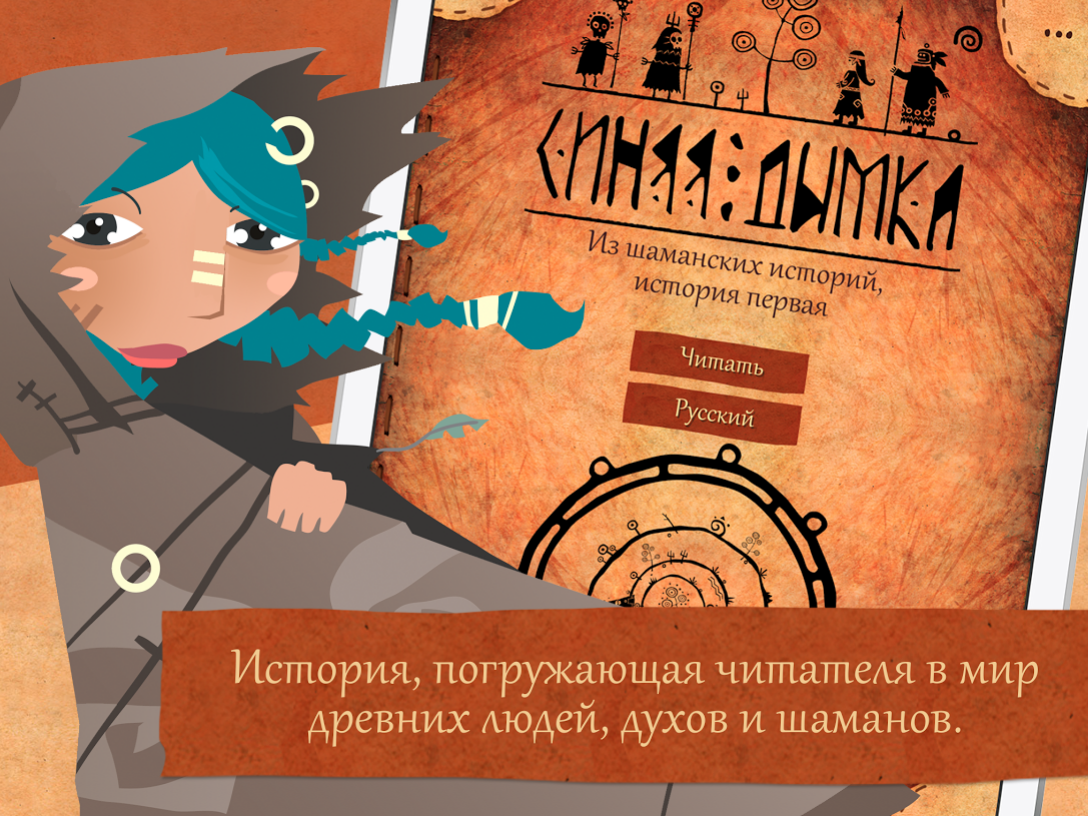
How promising is interactive books in general? Here in the West, for example, the Gamebook Adventures series are popular, some time ago the Russian NARR8 worked in this direction. Is it worth waiting for the growth of this market or is it still a very niche market?
I think that in countries where comics are a serious industry (USA, Japan) sooner or later revived comics will become mainstream. Interactive books, on the other hand, are likely to remain a niche story for enthusiasts.
As for NARR8, perhaps their main mistake was the lack of an initial focus on cooperation with major licensor players: Marwell, DS, or at least with Cartoon Network. Entering a new market for yourself without having any trump cards, except technological ones, is always a risk.
By the way, have you ever thought about localization of Western interactive books to the “great and mighty”?
We never thought about localization of Western interactive books. I think this is a headache for the publishers of these books themselves.
If we talk more broadly, for example, about the transformation of Western paper books into Russian-language interactive ones, then Sergey Lobov, our screenwriter and author of the story “Blue Haze”, a few years ago with his friends released an interactive book “The Egoist Giant” based on the work of Oscar Wilde. Like the Blue Haze, it was rather a project for the soul, made almost “on the knee”.
You have recently published The Barboskins. Against the background of the success of the game about Kim Kardashian, a move towards developing games under license is a very right decision. But you have worked with a local brand, how much does it help in promoting/generating traffic?
It helps a lot. You can view the statistics of Yandex search queries for words and phrases related to Barboskin to understand the scale of this phenomenon. You can look at the statistics of keywords in Sensor Tower to understand how many children are looking for “Barboskin” in the app stores. Using a license for mobile games is always a serious saving of marketing budgets.
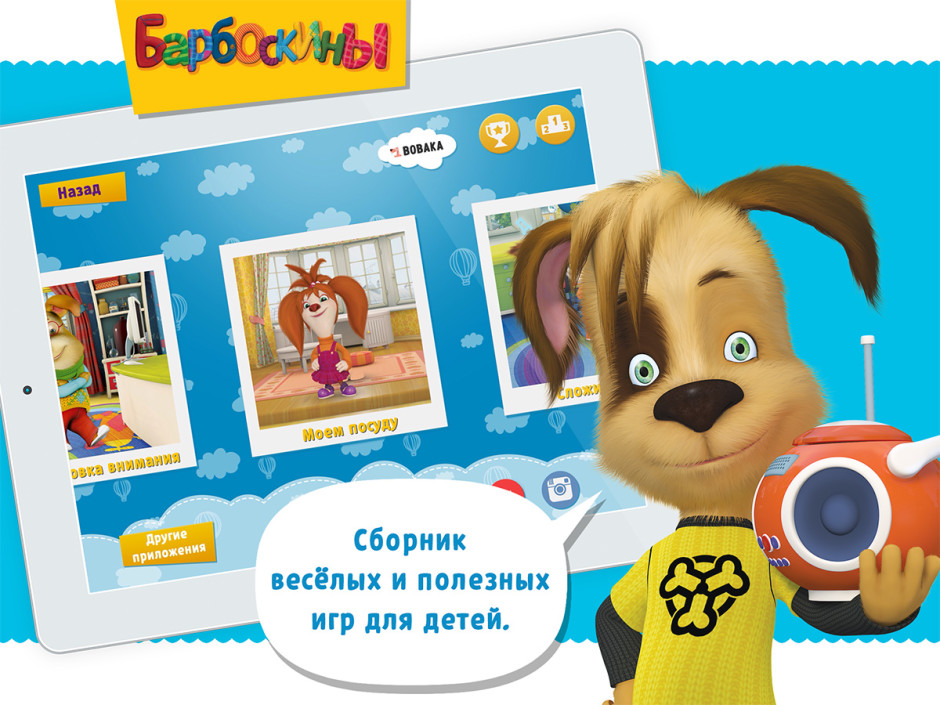
How difficult/easy is it today to negotiate with the copyright holder to develop a game under their license?
You can always try to come to the copyright holders “from the street” — the necessary contacts are quite easy to find. However, in this case, even if your proposal finds a response, you need to be ready to work on basic conditions that will be too much for many novice developers.
Copyright holders also take a lot of risks when they are engaged in licensing activities. Hence the serious prerequisites of such transactions: large initial payments, measured in hundreds of thousands of rubles; the need to demonstrate large monetary turnover on the part of licensees.
Some brands require developers to provide financial statements for past years, and sometimes the results of audits. This is due, among other things, to a large share of crime and counterfeiting, which takes place in the field of licensing of physical goods. Having burned themselves once, copyright holders expect similar problems in transactions on digital projects.
We at Bobak are trying to give the market of children’s digital projects a more civilized direction. Among the many players in this industry in Russia, there are only a couple of companies that do their job with dignity. Basically, developers treat children’s applications, to put it mildly, irresponsibly. There is no need to go far for examples: before we released the “Game Library with Barboskins”, our partners, who own this brand, repeatedly tried to enter the mobile market with another brand belonging to them — Luntik. However, none of the games released by Luntik with other developers have achieved any significant success.
We also managed to get into the tops of the Russian App Store in the overall standings with the relatively fresh and only gaining popularity brand “Barboskiny”, hold out there for a long time and remain among the leaders of the children’s apps section later. And this is just the beginning of the great journey of the “Barboskins” on mobile platforms.
What do copyright holders require from developers?
The basic conditions of Russian licensors can be very serious and include a large number of conditions: starting from requests for statutory documents, accounting reports for recent years, disclosure of portfolios and information about partners and subcontractors (sometimes with the provision of their constituent documents), and ending with informing about the availability of rights to use the results of intellectual activity of other copyright holders with supporting documents documents.
Sometimes they even ask for “letters of recommendation, certificates and letters of thanks from government agencies.” Some may require guarantees for future brand promotion costs. And finally, we have met requests to insure the licensee’s liability in the amount of at least 500 thousand dollars in order to ensure the obligations under the licensing agreement. This means an additional several thousand dollars to the cost of the license, the price of which is not small in itself. All this, as I have already said, is the cost of combating counterfeiting in the physical goods markets.
However, both pirates on the web and in mobile give heat. Every week we send dozens of emails to Internet service providers and app stores about blocking pirated sites and apps that take our content and sell it without embarrassment.
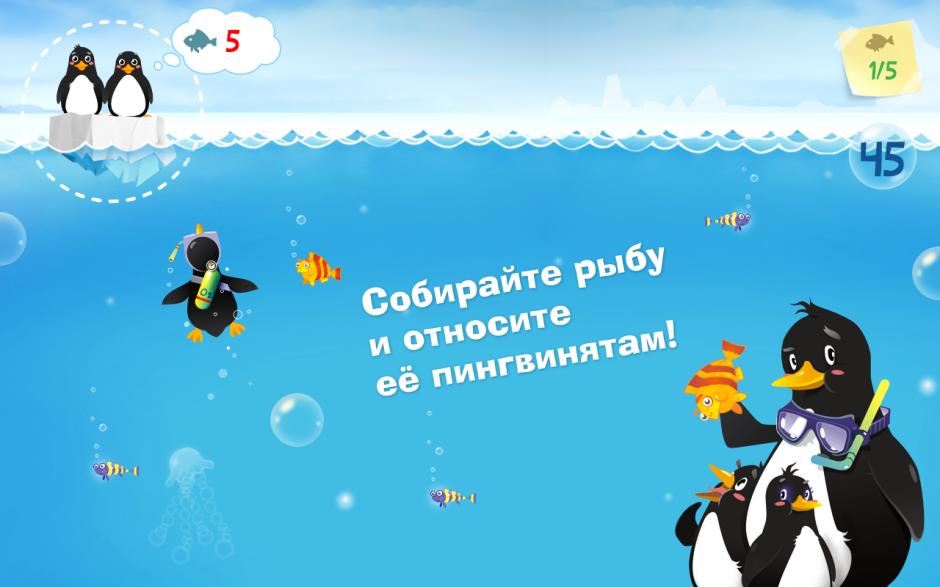
If it’s not a secret, under what conditions do you work with licensors?
Thanks to the relatively long history of our relationship with copyright holders, thanks to the success of our games in the App Store and Play Market, we managed to greatly simplify and de-bureaucratize many processes. Therefore, we and our friends can always count on more acceptable and democratic conditions.
And the last question: do you plan to continue working on games using popular Russian IP?
Yes! In the near future, we plan to give the green light to projects on “Luntik” and “Three Heroes”. Now we are just engaged in restarting the official websites of these brands.
You can also read about the market of children’s applications on our website in the following materials:
